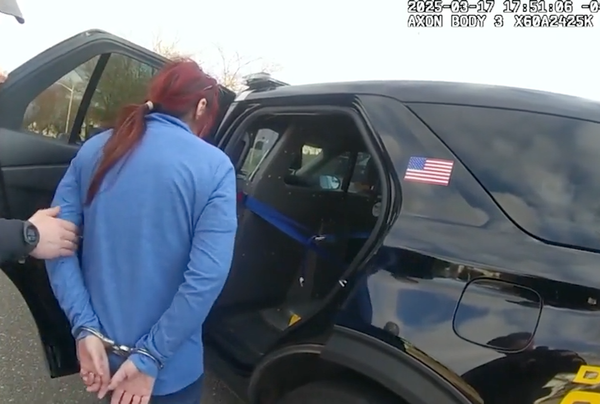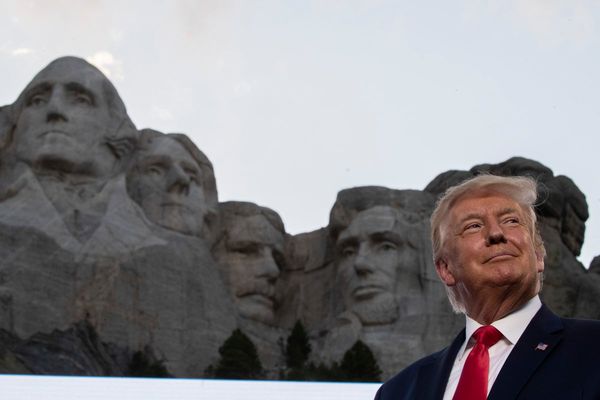
King Charles has a landmark birthday today. And as one does when one lives in a palace, he will be spending it visiting a food bank.
The trip is a carefully calibrated statement of intent bringing together two of the 75-year-old monarch’s longstanding interests – environmentalism and tackling social ills – under the umbrella of his Coronation Food Project, which will distribute food that would otherwise be wasted to people living in food poverty. Launching it via an article in the Big Issue, the year after his baseball-capped son sold the magazine undercover on a London street, nods to Prince William’s recently launched campaign on homelessness – as does making Louise Casey, who led national efforts to get rough sleepers off the streets during lockdown, co-chair of the food project.
Given the endless months of planning that go into every glacial step the monarchy takes, it would obviously be wrong to see all this as a rebuke to a shrill political mood that saw the now-sacked Suella Braverman describe homelessness as a “lifestyle choice”, or even to a king’s speech announcing a retreat on net zero. Yet choosing to highlight that 14 million Britons live with food insecurity in the middle of a cost of living crisis is not meaningless either.
Though royals will always shy away from political controversy, decisions about which gritty social issues are now uncontroversial enough for them to safely adopt are in some ways unavoidably political themselves. By choosing to campaign on food poverty, the king is saying that this is something no right-thinking person could expect him to ignore, at a time when government is reportedly plotting yet another round of welfare cuts. While royals rarely push at the boundaries of political thinking, what they can do is hold an existing line at a time when extreme political forces are pushing back against it.
After a fraught Remembrance weekend in which far-right thugs fought the police at the Cenotaph and antisemitic placards were paraded through London, there is now a palpable public craving for authority figures capable of unifying rather than setting people at each other’s throats. Any idiot can sow divisions, as the Labour shadow minister Jess Phillips tweeted last week, but it takes real skill “to unite and give hope”. Rishi Sunak seemingly now realises the need at least to try, judging by a reshuffle that dispensed with the recklessly provocative Braverman and brought back David Cameron, who for all his faults was at least sufficiently consensus-minded to sustain a coalition government for five years. Though Tory MPs with seats under threat from the Liberal Democrats may be relieved to see him back, the idea that he can somehow bring the wider country back together stretches credulity: only an election can now wipe this particular slate clean. But that could be a year away. What role, if any, the king can play in holding a now very uncivil society together in the meantime has become an interesting question.
For some, the very idea of unelected royals playing any role in public life evokes an understandable kneejerk hostility. But the monarchy isn’t going anywhere and for now it can reach hearts and minds that irritated republicans mostly do not. King Charles doesn’t yet have his mother’s reassuring Pavlovian effect but he has a long track record of promoting multi-faith understanding, a commitment to the social fabric, and a useful ability to put awkward topics on rightwing newspaper front pages.
For all the cynicism about Prince William’s homelessness project, I was at a social housing conference in Manchester when it was first announced and what struck me was the relief in the room. People who had spent years plugging away in an under-reported, under-funded and lately fairly despairing field felt someone important had noticed them for once, and I suspect this week food bank helpers will feel the same. William’s Royal Foundation is serious about policy detail – Andy Burnham, Manchester’s mayor, told me the prince’s team had been in touch months earlier asking about the city’s Housing First experiment in housing homeless people with complex needs – and interested in pushing the envelope, putting funding into pilot projects that could be picked up by an enlightened future government. He isn’t going to solve homelessness overnight this way any more than his father is going to solve food poverty. But in an otherwise bleak and angry week, it feels churlish to start kicking lumps out of anyone trying to create even the faintest glimmer of hope.
Gaby Hinsliff is a Guardian columnist







